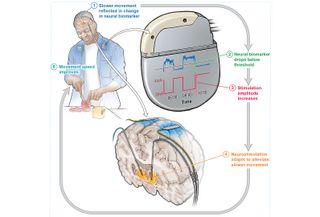
Syntara Ltd* has announced the dosing of the first patient in a Phase 2 trial investigating PXS-4728 in patients with a sleep disorder at risk of Parkinson’s and other neurodegenerative diseases.
The company, in collaboration with leading neurologists, is studying the drug’s effect on patients with isolated Rapid Eye Movement Sleep Behaviour Disorder (iRBD), which causes otherwise healthy people to act out their dreams.
Research has identified iRBD as the strongest predictor for the development of Parkinson’s and dementia with Lewy Bodies. A recent multicentre study found that over 70% of iRBD patients transitioned to a neurodegenerative disease.
The study will examine whether targeting inflammation in the brain of people with iRBD might provide a viable neuroprotective strategy to prevent the disease.
“Unprecedented opportunity”
“Currently, we have no disease-modifying treatments for Parkinson’s disease and by the time patients are diagnosed they have already lost a significant number of brain cells,” University of Sydney Parkinson’s Disease Research Clinic at the Brain & Mind Centre director and principal investigator Professor Simon Lewis said.
“Therefore, targeting patients with iRBD offers us our best strategy for slowing cell death when it could be most impactful.
“This trial provides an unprecedented opportunity to study the effect of PXS-4728 and its potential role to act as a neuroprotective agent by reducing neuroinflammation in regions of the brain associated with progression to disease.”
Syntara has engaged Parkinson’s researchers at the Universities of Sydney and Oxford to lead the clinical trial.
The trial marks the first of three Syntara phase 2 studies in diseases with high unmet need that will begin recruitment before the end of 2023.
“Value generating opportunities”
“With the divestment of our mannitol respiratory business and launch of Syntara last month, this trial initiation importantly marks the first of three phase 2 studies scheduled to commence before the end of the year in a significant step up in value-generating opportunities,” Syntara CEO Gary Phillips said.
“iRBD patients have very few treatment options available so this study provides hope for an effective treatment with potential to move towards the longer-term goal of stopping neurodegeneration.
“The company’s other studies in myelofibrosis and scar prevention after surgery for burn injuries offer similar potential to change patient lives.”
The company expects to begin recruitment at the UK centre later this year, with the trial to continue throughout 2024 and generate results in the first half of 2025.
*At the 2023 annual general meeting to be held on November 28, 2023, Pharmaxis shareholders will be asked to approve a change in the name of the company from Pharmaxis Ltd (ASX:PXS, OTC:PMXSF) to Syntara Limited (ASX:SNT).

